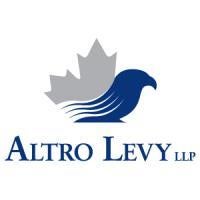Just hours before midnight on New Years Eve, the US Senate hammered out a tentative deal to avoid sending the country over the Fiscal Cliff. Yesterday, a reluctant, Republican-controlled House of Representatives has also blessed the plan, which deals with many of the major tax issues at stake, while pushing back the spending issues to later into the new year.
The “Fiscal Cliff”, a term coined by Ben Bernanke, the Chairman of the Federal Reserve, refers to the cumulative effect of spending cuts and tax increases, which were scheduled to occur January 1, 2013 as a result of the expiry of several pieces of legislation. The issue has received a great amount of press in recent months, as commentators continued to hope that Congress would agree on compromise legislation to soften the economic blow. In this post, we will outline the primary cross border tax impacts on Canadians.
Federal Estate Tax
For Canadians with interests in the US, the primary consequence of going over the Fiscal Cliff would relate to the federal estate tax. The Canada – US Tax Treaty allows Canadian residents to piggy-back onto some estate tax exemptions that are available to US citizens and residents. In particular, in 2012, there was a $5.12 million exemption from estate tax, such that only estates worth greater than that amount would end up paying taxes, and the maximum rate was capped at 35%. The looming Fiscal Cliff threatened to bring us back to the $1 million exemption amount at maximum rate of 55%, which was in effect when President Bush took office in 2001. Note that this is not a capital gains tax on death, as we have in Canada. This tax applies to the fair market value of assets at the time of death.
The good news for Canadians is that the deal will extend the $5.12 million exemption amount, which will increase with inflation. The maximum rate will increase to 40% on a permanent basis. As a consequence, if a Canadian owns US assets (such as real estate or US securities) worth more than $60,000, and passes away with a worldwide estate valued in excess of $5.25 million, some US estate tax is likely going to be payable. It is important to note that the worldwide estate value includes everything: real estate, investment accounts, RRSPs, business interest, even the proceeds of life insurance. However, the tax is only applied against the value of the US situated assets, and some tax credits ought to be available under the Tax Treaty thanks to the extension of the high exemption amount.
Nonetheless, it remains worthwhile for high-net worth Canadians to evaluate their estate tax exposure and hold US assets in Cross Border structures that minimize or eliminate the potential for US estate tax liability.
Income and Capital Gains Tax
Most of the press on the Fiscal Cliff has centered on the increases in income tax rates. This issue is very unlikely to cause Canadian residents much concern, even though US income tax may be payable. Since Canadian residents pay Canadian tax on their world wide income, any US source income earned by a Canadian will be added on the top of their Canadian income, such that it will be taxed at a relatively high marginal rate. In contrast, that same US sourced income will be taxed in the US at the lower marginal rates, and Canada will give a credit for US tax paid. As such, as long as the marginal rate in the US is lower than the marginal rate in Canada on the same income (which it clearly will), increases in US income tax rates will not be noticed by Canadians when the dust settles at the end of a tax year.
One expiring tax cut that was not renewed under the Eleventh Hour Deal relates to the long-term capital gains tax rate on the disposition of capital assets. This is one tax increase that will be felt by some Canadians. In Canada, we pay regular income tax on half of the capital gain. As such, if the gain pushes a taxpayer into the top marginal rate in Canada, the effective capital gains tax rate ranges from approximately 19.5% in Alberta to almost 25% in Quebec. In 2012, the US federal capital gains tax for individuals who had held an asset for longer than one year was capped at 15% on the gain. That rate has increased to 20% with the Fiscal Cliff Deal (high income earners will pay 23.8% including an “Obamacare” surcharge). Where state-level tax also applies, the US capital gains tax may well exceed that owed in Canada, resulting in a higher overall tax burden. For example, California has a state capital gains tax rate of 9.3%. Therefore, any Canadian selling a California property will owe more tax to the US (combined rate of 29.3%) than to Canadian jurisdictions. Other states have a lower rate of tax, such that the effective US rate may not exceed the Canadian rates. For example, Florida does not impose a capital gains tax on individuals, trusts, or limited partnerships.
Market Volatility
The other aspect of the Fiscal Cliff that may affect Canadians is the most difficult to anticipate. Many economics were predicting that the overall effect of the Fiscal Cliff would send the US back into recession. This was the concern that prompted Bernanke and others to characterize the issue as a ‘cliff’ connoting catastrophic economic consequences. While the economy should respond favorably to the agreement that Congress passed, there are many pressing issues that were simply deferred in this week’s deal. Many of the spending cuts, which are thought to jeopardize the economic recovery, were pushed back two months for Congress to resolve later on. If worst fears are realized, the value of many US assets may decline as economic conditions generally erode.
As cross border tax and estate planners, we often advise Canadian clients to consider repositioning their investment portfolios to exclude directly held US securities because of the US estate tax exposure they represent. If you believe that the fiscal transition will negatively impact the value of US securities, it may be a good time to discuss repositioning with your investment advisor.



 i
i


